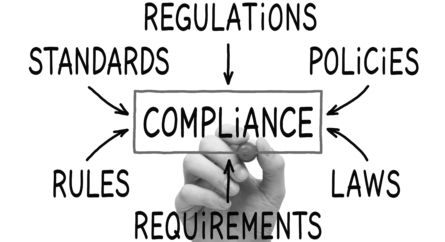When Race Meets Sex: Can Employment Decisions Regarding Sexual Misconduct Give Rise to Discrimination Claims?
Darrell Peoples (“Peoples”), an African-American former “grounds person and heavy equipment operator” at Wichita State University (“WSU”), sued WSU and a female coworker, asserting claims for discrimination and termination based on race, sex, age, and retaliation, and that WSU and the female coworker defamed his character. He claims he was dating the female coworker, who is not African-American, and that WSU terminated him in contravention of its employment policies and procedures, without any proof of wrongdoing and without applying a required policy of progressive discipline, based on an untrue and unsupported claim of sexual harassment and/or stalking. WSU and the coworker both moved to dismiss Peoples’ complaint.
Title VII of the 1964 Civil Rights Act makes it unlawful “to discharge any individual, or otherwise to discriminate against any individual with respect to his compensation, terms, conditions, or privileges of employment, because of such individual’s…race [or] color…” A plaintiff can make a prima facie case of discrimination by showing that he is a member of a protected class, that he suffered an adverse employment action, that he was qualified for the position, and that he was treated less favorably than others not in the protected class. Here, Peoples claims that WSU fired him based on an untrue and unsupported claim of sexual harassment or stalking, and that WSU’s alleged failure to follow its required disciplinary procedures shows that the termination amounted to “racial profiling” and discrimination. If true, this could support a claim under Title VII. The court accordingly denied WSU’s motion to dismiss Peoples’ claim of employment discrimination insofar as it alleges that he was unlawfully terminated on account of race. The Court found, however, that Peoples did not sufficiently allege any facts to support a claim that the dismissal was also based on his sex, age, or in retaliation for some protected conduct; WSU’s motion to dismiss was thus granted with respect to those allegations.
As to the defamation claim, Peoples alleged little more than that the Defendants tarnished his “job history and [character]” by “allowing their thoughts and [opinions to] be [their] reasoning to fire [him].” He failed to identify any particular false or defamatory statements, the person who made the statements, or to whom the statements were made. Thus, WSU’s motion to dismiss the defamation claim was granted.
Concerning the female coworker, under Title VII, individual coworkers are not liable. Additionally, for the reasons indicated above, Peoples alleged no factual basis to support a plausible claim of defamation. Accordingly, all claims against the coworker were dismissed.
In sum, Peoples’ Title VII claim based on race discrimination will proceed.
Client Tip: The facts of this case are not well-developed or pled at this stage of the litigation, so it remains to be seen whether WSU had in place and followed proper disciplinary procedures and protocols. Institutions should be vigilant about updating their policies and employee handbooks and following them.
Categorized: Discrimination, Employment, Higher Education, Workplace
Tagged In: discrimination, termination, Title VII of the 1964 Civil Rights Act, Wichita State University












